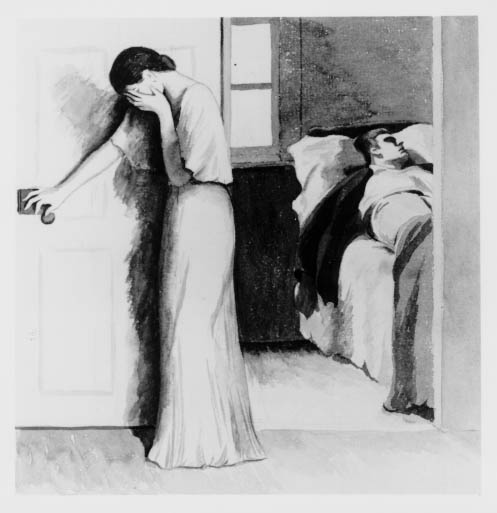Does research support psychoanalytic explanations for homosexuality? In one recent exchange at the blog, Ex-Gay Watch, NARTH Scientific Advisory Board member, Jim Phelan advanced psychoanalytic theory with reference to a book entitled, Freud Scientifically Reappraised: Testing the theories and therapy, by Seymour Fisher and Roger Greenberg (1996). The 1996 edition is an update of their initial report in 1977. Specifically Dr. Phelan said that Fisher and Greenberg concluded that empirical research supported the Oedipally based Freudian conception of male homosexuality being derived from a distant or negative father and an overprotective mother – the so-called “classic triadic relationship.”
I have expressed reservations about the psychoanalytic model before on this blog. Rereading Fisher and Greenberg refreshed my memory about why I do not believe the evidence for the theory is strong.
Regarding male homosexuality, Fisher and Greenberg said on page 139,
The post-1977 material we have reviewed concerning male homosexuality has narrowed the apparent support for Freud’s formulation in this area. Previously, we regarded the empirical data to be congruent with with Freud’s theory that male homosexuality derives from too much closeness to mother and a distant negative relationship with father. As noted, the increased pool of data available reinforces the concept of the negative father but fails to support the idea of the overly close, seductive mother…So we are left with only one of the major elements in Freud’s original formula concerning the parental vectors that are involved in moving a male child toward homosexuality. This reduction in confirmed points on the graph makes it all too easy to conjure up alternative theories of homosexuality that could incorporate the “negative father” data…There would be no need to appeal to the Oedipal image of a son competing with his father for mother’s love.
And so Fisher and Greenberg suggest that the evidence they reviewed supported a correlation between negative fathering and adult homosexuality but not the Oedipal drama surrounding mother. In addition to this limitation of psychoanalytic theory, there is no need to limit theorizing to thinking that poor fathering causes homosexual attractions in some general way for all same-sex attracted men. The empirical work is not able to specify well where the father-son relationship may have faltered. When sons recollect poor relationships with father, the questionnaires infrequently capture when the bad relationship occurred. For many men, I have spoken to and worked with, the bad relationships that are reported came after the emergence of homosexual interests, often in young adolescence. Furthermore, a sizable number of homosexual men report no such disruptions ever.
Fisher and Greenberg acknowledge the deficits in the research. Regarding early research (pre-1977), they noted:
…this entire body of literature is based on a strategy of asking adult homosexual subjects (and the adult heterosexual controls) to remember how their parents treated them during childhood. The questionnaires made such inquiries as, “Was your mother overly close to you?” “Was she intrusive?” “Was your father cold?” “Was he weak?” “Was he distant?” (p. 136).
The authors are skeptical that this strategy is sufficient to address the theoretical formulations that fathers were in fact all of the traits described. Furthermore, the authors pointed out four major methodological problems with the early research.
1. Some of the studies were based on highly selective samples (e.g., homosexuals in treatment or institutionalized for some reason).
2. The definitions of “homosexual” were in some instances so vague that one cannot distinguish whether subjects were possibly bisexual or had simply experimented on a limited basis with homosexual acts.
3. Bias was introduced into responses because some subjects were in psychoanalytic therapy and therefore had already been indoctrinated with Freud’s theory of homosexuality.
4. Few attempts were made to differentiate subjects with reference to mediating variables such as degree of integration into the homosexual community, age at which consistent homosexual behavior began, or degree of masculinity-femininity.
For me, these are crucial research issues that should make anyone very cautious in describing the body of research as supporting a conclusion. Even so, Fisher and Greenberg lent support to the observation of significant deficits in father-son relationships with male homosexual sons. Unaddressed is the issue of direction of causal relationship. Did the research identify the cause of homosexuality being poor fathering or on the other hand, can we tell whether fathers and sons were disrupted due to the emerging behavioral and sexual differences of the sons? The answer to both sides of that question is no, we can’t tell. And as Fisher and Greenberg note, with the mother dimension in serious question, the reparative/Oedipal explanation involving father is weakened. It may be that fathers are involved in cause but in some other more peripheral way (e.g., they do not support traditional heterosexual norms) or it may be that father-son relationships are strained but not with causal implications at all.
As for research regarding lesbians, the psychoanalytic notion is similar. Conflicted mother-daughter relationships are implicated, along with negative fathers. However, Fisher and Greenberg did not find support for the mother-daughter dynamic but did find a weak relationship between lesbianism and negative fathers. The same research cautions mentioned with regards to gay males applies here.
What can we conclude? Very little, in my opinion. It is inconsistent with the most charitable reading of what is not very good research to say psychoanlysis is supported as to etiology of homosexuality. In a future post, I hope to look at research since 1996.
